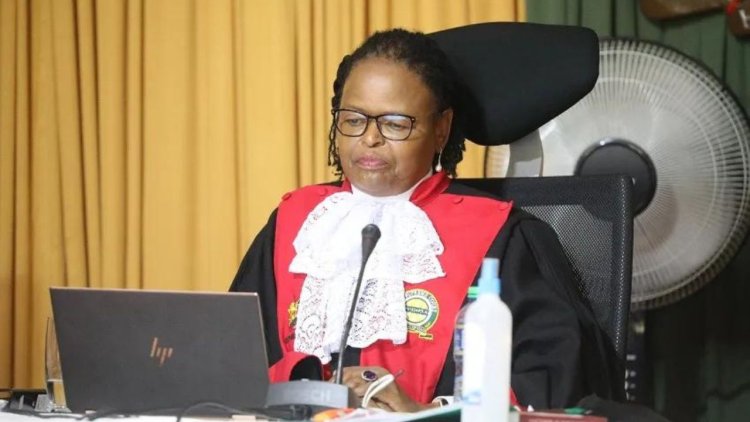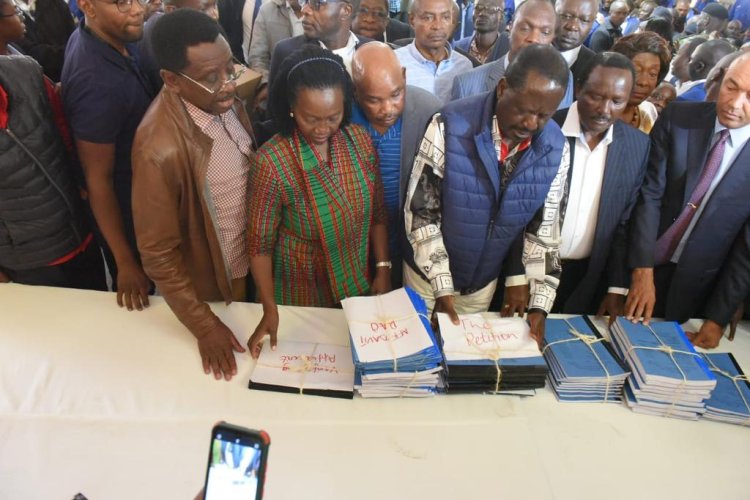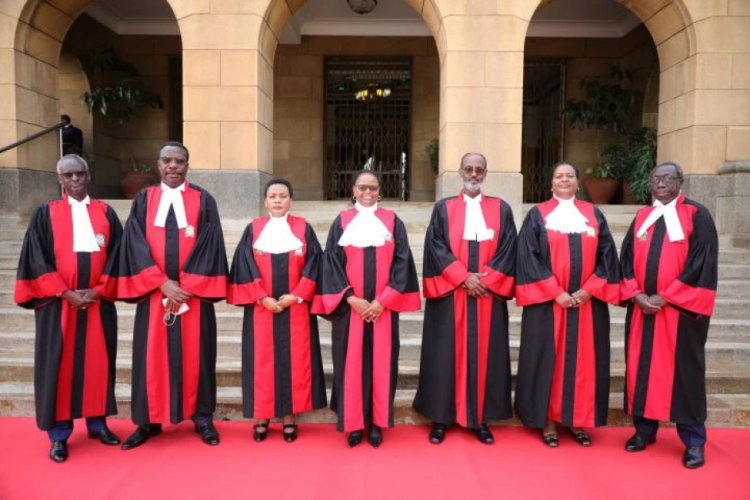Objectives Of Presidential Petition Pre-Trial Hearing At Supreme Court
The apex court is required to convene a pre-trial conference within 8 days from the filing of a presidential election petition.

The Supreme Court has set the date for its pre-trial hearing for Tuesday, August 30 at 11 am for up to nine petitions filed regarding the 2022 presidential elections as well as affidavits filed before it.
The apex court is required to convene a pre-trial conference within 8 days from the filing of a presidential election petition.
Some of the objectives of the pre-trial hearing include framing contested and uncontested issues in the petition as well as considering consolidating petitions where more than one petition is filed.

Raila Odinga presents his petition documents at Milimani Law Courts. /TWITTER
Others include determining the number of advocates that the court shall hear from, on behalf of each party as well as allocating time for each party to address the court once the hearing begins on Wednesday, August 31.
The court will also be expected to give directions specifying the place and time of the hearing of the petition and give any other such orders that may be necessary to ensure a fair determination of the petition.
All nine petitioners who have filed their petitions and respondents are expected to participate in the pre-trial conference.
Apart from Raila Odinga and Martha Karua's Azimio La Umoja-One Kenya coalition party petition, other petitioners include John Njoroge Kamau, Daniel Kariuki Ngari, Juliah Nyokabi Chege, Khelef Khalifa, Okiya Omtatah, Youth Advocacy Africa and Reuben Kigame.
Chama Cha Kazi Party leader Moses Kuria has also petitioned the Supreme Court to throw out Raila's appeal to overturn President-elect William Ruto's election victory.
Senior Counsel Charles Kanjama opened up on the accurate consideration of petitions and affidavits the Supreme Court has received, noting that the affidavits touch on technical areas and the Judges are assisted by the evidence produced before them before they make their determination.
The intensity of the case from various parties only allows them to read affidavits of technology experts and lawyers' presentations before coming up with their final verdict, one exercise that does not necessarily require their expertise.
They will also rely on the process of examination, cross-examination and re-examination based on lawyers' submissions from all parties to test how strong and how truthful the evidence presented is.
"By looking at evidence of one side and the other, and comparing them and contrasting against other information presented, the Judges can assess what is called probative value to prove the case that one is seeking. In this case, the Judges will rely on affidavits before them," Kanjama stated when he appeared in Citizen TV on Sunday, August 28.

 admin
admin 





